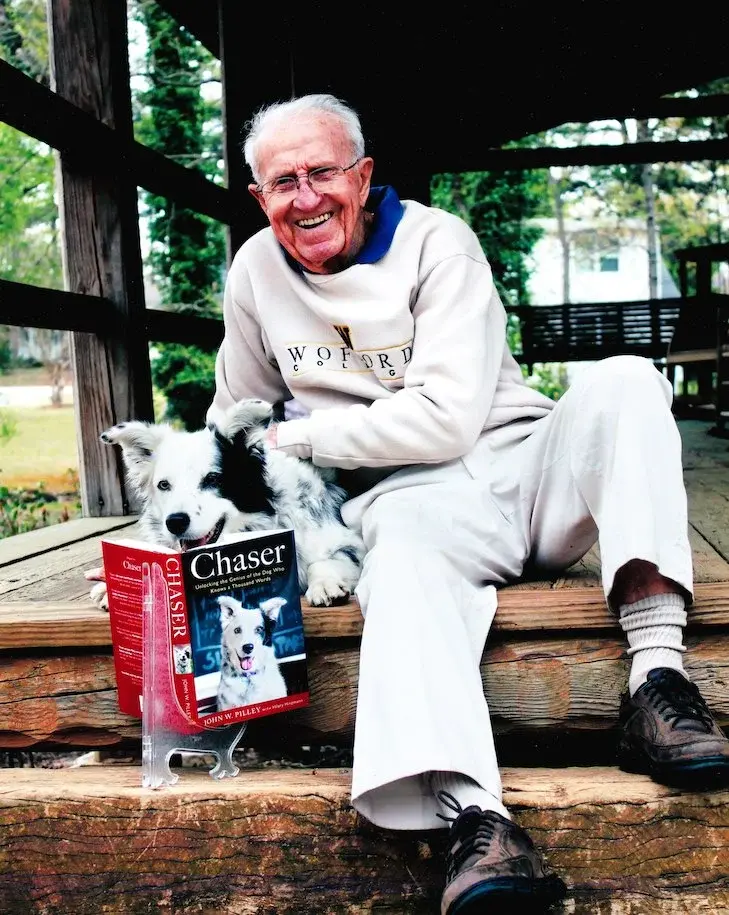Understanding how dogs learn is a fascinating journey into canine psychology, behaviorism, and neuroscience. It's all about tapping into their natural instincts and communication cues. Dogs, including German Shepherds, learn through several mechanisms, but the most prominent are associative learning (including classical conditioning and operant conditioning) and social learning. Each dog is an individual, and what motivates one may not motivate another, highlighting the importance of a tailored approach to training.
Associative Learning
Classical Conditioning- Link
This learning process was famously illustrated by Ivan Pavlov in the early 20th century. This learning process was famously illustrated by Ivan Pavlov in the early 20th century. Pavlov showed that dogs could learn to associate a neutral stimulus (like the sound of a bell) with something that naturally evokes a response (like food), eventually responding to the neutral stimulus as if it were the natural one. In practical terms, this means a dog can learn that the sound of a leash means a walk is coming, getting excited just by hearing it.

Operant Conditioning
Developed by B.F. Skinner, operant conditioning is based on the idea that dogs learn from the consequences of their behavior. It's divided into four components: positive reinforcement, negative reinforcement, positive punishment, and negative punishment.
- Positive Reinforcement: Giving something pleasant after a desired behavior, like treats or praise, to increase the likelihood of that behavior being repeated.

- Negative Reinforcement: Removing something unpleasant when the desired behavior occurs to increase the likelihood of that behavior repeating.
- Positive Punishment: Adding something unpleasant in response to an unwanted behavior to decrease its occurrence.
- Negative Punishment: Taking away something pleasant in response to an unwanted behavior to decrease its occurrence.
.
Social Learning
Dogs are also keen social learners. They observe and mimic the behaviors of other dogs and humans. This ability is rooted in their evolutionary history as pack animals, where learning from the actions of others was crucial for survival. A study by Adam Miklósi and colleagues shows that dogs can understand human gestures and cues, often looking to humans for guidance in problem-solving situations.
Motivational Differences
Each dog has its own set of motivators, which can include food, toys, praise, or play. Some dogs may be highly food-motivated, making treats an effective reward, while others may prefer a game of fetch or verbal praise. Understanding what your dog values most is key to effective training.

The Role of Corrections and Rewards
The timing of rewards and corrections is crucial in dog training. Immediate feedback helps the dog associate its action with the consequence, be it a reward for a job well done or a correction for unwanted behavior. Delayed reactions can confuse dogs, making it harder for them to learn. The concept of "marker" training, using a clicker or verbal cue to "mark" the desired behavior before giving a reward, helps bridge the gap between action and reward, making it clear to the dog which behavior is being rewarded.

Scientific Studies
Research in canine cognition and learning is vast, with studies from institutions like the Duke Canine Cognition Center shedding light on how dogs think and learn. These studies reinforce the effectiveness of positive reinforcement and the importance of understanding individual differences among dogs. For instance, research by scientists such as John Pilley on the border collie Chaser has shown the incredible potential of dogs to learn and understand complex commands and behaviors through positive reinforcement and play.

Remember, while this overview gives insight into how dogs learn and the different methods of motivation, every dog is unique. Tailoring your approach to your dog's personality and preferences is key. And always, when in doubt or faced with challenging behaviors, consulting with a professional dog trainer or behaviorist is recommended.
#CanineGenius #SmartPups #LearningPaws #BrainyBarks #GeniusDogsOfInsta #WiseWhiskers #TricksterTails #PawblemSolvers #AgileMinds #ScholarlySnouts

Comments